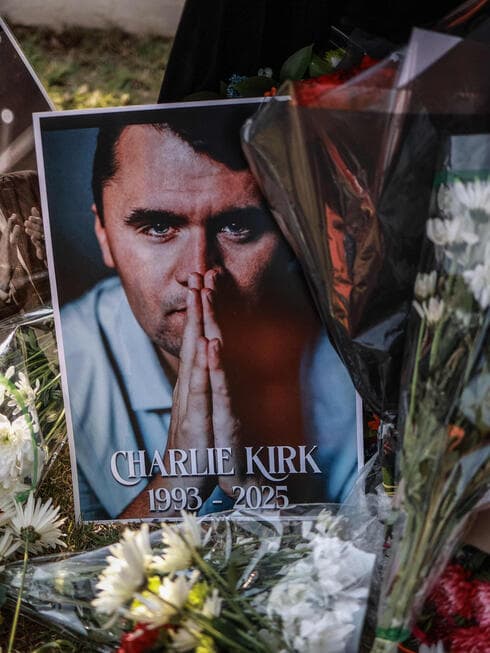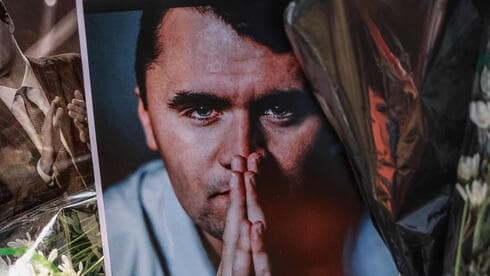The murder of Charlie Kirk is a key moment in the struggles within American society. What began as a culture war is developing into a series of violent and bloody confrontations. As usual, Donald Trump chose the most precise words when he defined Kirk as a"martyr." For the American right, that is exactly the case. And to understand why, it is worth knowing what Kirk did in his short life (31).
 Photo: Phill Magakoe / AFP
Photo: Phill Magakoe / AFPKirk attacked a cause that was considered completely lost. At the height of the Obama administration, he tried to build a grassroots movement that would appeal to young Americans and mirror the Democratic success with that audience.
Starting at the age of 18, Kirk attacked a cause that was considered completely lost. At the height of the Obama administration, he tried to build a grassroots movement that would appeal to young Americans and mirror the success of the Democratic Party among them. Starting in the early 2000s, and specifically after the presidency of George W. Bush, one of the most banal statements about American politics was that young people were increasingly leaning to the left. Kirk—a devout Christian who grew up in a Democratic suburb of Chicago and had been involved in politics since high school—built such a movement from scratch, dropping out of college for it, and because of his age, he understood very well that most of the work would be done through social media. He was young, photogenic, and incredibly talented at debating. These skills were put to use at college gatherings across the US, where he would talk to students, sit – let's say wearing a red MAGA hat – under a"Prove Me Wrong" sign, and debate in a respectful and sarcastic manner. The conversations, which took place everywhere from universities in rural America to Oxford in the UK, touched on the points of contention between liberals and conservatives in America – from abortion to gun control, through race relations and the war in the Gaza Strip.
Kirk's total activity – married and father of two daughters – made him a superstar in the Trump camp (which he supported, politically astutely, back in 2016), and was one of the reasons why the president was able to bring about a real upheaval among young people. Kirk's positions were controversial; his critics accused him of incitement and incitement. He said that the American way is to send your children to school without being taught"gay-lesbian-transgender garbage" or being forced to hear the Muslim calls to prayer. A typical statement, just this week:"Islam is the sword with which the left is cutting the throat of America." For Kirk, it was a"spiritual battle for the fate of the West."
The murder made him an eternal hero on the American right, especially since he himself warned that violence was being used against him and that he was under death threats.
The murder made him an eternal hero on the American right, especially since he himself warned that violence was being used against him and that he was under death threats.
Violence is spreading in America, and the list is long: the assassination attempts on Donald Trump; the attempted break-in and kidnapping at the home of Nancy Pelosi, former Democratic Majority Leader; the assassination of two Democratic members of the Minnesota House of Representatives; the assassination of Brian Thompson, the CEO of a major health insurance company; and of course – the mass assault on the Capitol building on January 6, 2021, where there were also casualties.
America enjoys historically unprecedented stability and power. At the same time, and in recent years, it has been plagued by acidic political tribalism, a discourse and media structure that rewards extremism, the strengthening of nationalism on the right and revolutionary radicalism on the left, all combined with endless access to weapons. Foreign actors are trying, through social networks, to encourage this division.
The murder of Charlie Kirk is the current peak of this storm, but it is unlikely to be the final peak. In a clip that went viral after his death, Kirk explained:"When people stop talking, you get violence. That's what happens when civil wars break out."
The full column - tomorrow in the "Shabbat Supplement" of "Yediot Aharonot" and on Ynet+

